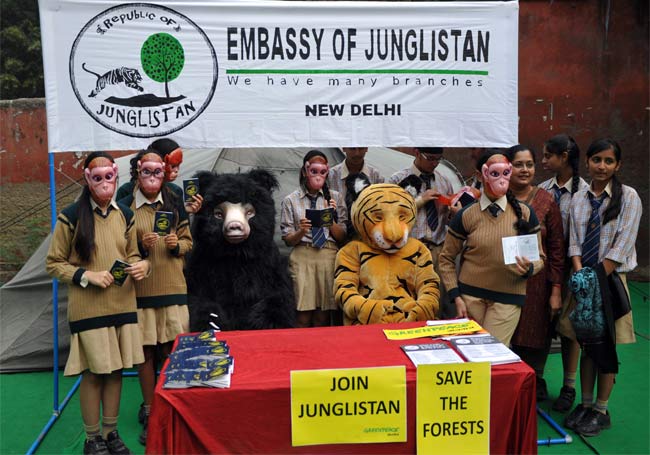
After accusing Greenpeace of hurting economic progress by campaigning against power projects and mining, the Intelligence Bureau, in a new report, says the NGO's clearance to collect funds from abroad should be cancelled. The Intelligence Bureau, which has described Greenpeace as "a threat to national economic security", says that the organization's compliance with tax rules should also be checked.
Here are 10 big developments in this story
The report was submitted on June 9 to the Prime Minister's Office and Ajit Doval, the National Security Adviser. (Cancel Permission to Greenpeace to Collect Foreign Funds: Intelligence Bureau)
"We are being targeted as an NGO which follows all the laws of the country. We show all the transparency and place our annual reports on website for everybody to see," said Bharti Sinha, spokesperson for Greenpeace India.
An earlier report by the Intelligence to the new PM and his administration was recently leaked; it contained the most serious charges yet against foreign-funded organizations, accusing them of trying to block projects that are key for development. (Greenpeace a Threat to Economic Security, Says Intelligence Bureau Report)
Greenpeace alone was leading a "massive effort to take down India's coal-fired power plant and coal mining activity," the report said.
"We believe that this report is designed to muzzle and silence civil society who raise their voices against injustices to people and the environment by asking uncomfortable questions about the current model of growth," Greenpeace rebutted. (Intelligence Bureau Report on NGOs Comes Under Attack From Activists)
"A significant number of Indian NGOs funded by donors based in US, UK, Germany and Netherlands have been noticed to be using people-centric issues to create an environment, which lends itself to stalling development projects," the Intelligence Bureau said.
Together, the cancellation, disruption or delay to these development projects had clipped gross domestic product growth by 2 to 3 per cent a year, its first report alleged.
The Intelligence Bureau said the targeted projects include coal-fired power projects, genetically modified organisms, mega industrial projects including South Korean firm POSCO's steel plant and Vedanta's bauxite project both in Odisha, and hydro-power projects in Arunachal Pradesh along the border with China. (Watch: Are NGOs Hurting Development?)
Greenpeace says that India should embrace renewable energy and improve energy efficiency instead of destroying forests to access the coal underneath.
The controversy has erupted as the new government seeks ways to restore economic growth that has fallen to below five percent.

